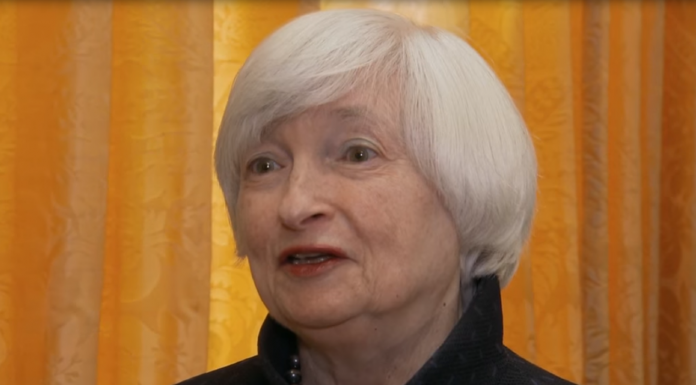The U.S. along with other G7 nations have agreed to set up a global minimum on corporate taxes of 15% in order to stop corporations from getting a tax break by off-shoring corporate facilities, says an announcement following U.S. Treasury Secretary Janet Yellen’s visit to London for face-to-face talks with her U.K. counterpart.
“G-7 finance ministers today, after years of discussions, have reached a historic agreement to reform the global tax system, to make it fit for the global digital age — and crucially to make sure that it’s fair so that the right companies pay the right tax in the right places,” U.K. Finance Minister Rishi Sunak announced in a video statement on Saturday, according to CNBC.
The G7 is made up of Canada, France, Germany, Italy, Japan, the U.K. and the U.S.
Critics of the scheme have pointed out that if the proposals pass in the various G7 countries, the big winner would be China, which would “use tax rates and breaks to lure even more investment into China. This would directly undermine the Biden administration’s stated goals on diversifying supply chains and containing Chinese power,” according to Foreign Policy.
As countries face huge COVID-inspired budget deficits, the industrialized countries are desperate to bring back corporate tax revenues that have fled their countries of origin for lower taxed regions such as Ireland, which has a 12.5% corporate tax.
Yellen hailed the move as a way to ensure global tax “fairness.”
“That global minimum tax would end the race-to-the-bottom in corporate taxation, and ensure fairness for the middle class and working people in the U.S. and around the world,” Yellen said via Twitter.
That global minimum tax would end the race-to-the-bottom in corporate taxation, and ensure fairness for the middle class and working people in the U.S. and around the world.
— Secretary Janet Yellen (@SecYellen) June 5, 2021
Others say it’s just an attempt to prevent tax competition and to make it easier to raise personal income taxes.
“Mr. Biden and Ms. Yellen hope a sufficiently high global minimum tax would shield the American economy from the anticompetitive consequences of their plan to raise the rate of corporate tax on U.S. companies from 21% to 28%,” said Joseph C. Sternberg, a member of the Wall Street Journal Editorial Board in the Journal.
“Don’t assume any of this is really about corporate taxation. The likely political purpose of this palaver is to make personal taxes—the kind voters care deeply about—easier to raise in short order,” Sternberg concluded.

